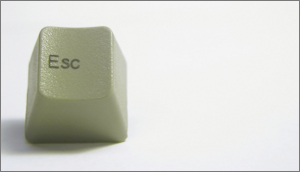Know When to Fold ’em (for the day)
by
 Who knew Kenny Rogers was a scientific prophet? In the immortal words of The Gambler, you gotta “know when to walk away, know when to run.” Nowhere could this be more relevant than in the lab…
Who knew Kenny Rogers was a scientific prophet? In the immortal words of The Gambler, you gotta “know when to walk away, know when to run.” Nowhere could this be more relevant than in the lab…
Knowing when to hang it up for the day is a lesson generally learned the hard way. Unlike many businesses, which physically can’t work outside of standard business hours, science never stops. It takes everything we’ve got, and screams for more. As a result, two things happen: 1) we feel a constant pressure to be in lab, so 2) we overwork and start making mistakes. Unfortunately, we usually have to repeat the latter many times to realize we really need to address the former.
Let’s be clear- mistakes are natural. Now let’s be honest- mistakes are killers. Not only do they waste precious reagents, more importantly, they waste time. In fact, some mistakes actually act as time machines, pushing us backwards in the project. Dropping the flask full of purified inhibitor on the ground means we now have to synthesize more inhibitor, just to return to the same point in the project.
Simply working longer does not always translate to working smarter. We’re all different. Some of us can work 12 hours straight and maintain a laser-like focus. Some of us are good for two-hour blocks then need to take short breaks to stay fresh. I’m sure one day there will be a SNP identified that will explain this, but for now, we need to learn to trust our body.
Hokey sounding? Maybe. But as our minds tire, the odds of making mistakes increase dramatically and mistakes are precisely what we’re trying to avoid. Compare the schedules of the average third-year graduate student with that of the average third-year postdoc. Generally, the postdoc will have a far more regular schedule. There are many reasons for this (family, back pain, no more panic that they’ll never graduate…), but one of them is certainly that they’ve identified their limits and they stay within them. The postdoc understands that science is never-ending and they’ve drawn a line in the sand. They also understand that if they pull an all-nighter trying to synthesize a compound, the next day will be a wash, and may even end up setting them back if they’re not focusing properly.
We’re certainly not advising against hard work. That’s an essential part of being a good scientist. However, so is understanding our personal limits and not pushing them too hard. Think of how much data we would generate in a year if we only performed one experiment a day, but it was well-designed and perfectly executed.
When we feel like we’re losing focus, we need to stop and hang it up for the day. From that point on, it’s just pure gambling, and you know what Kenny would say…
Any advice for managing the non-stop nature of science?


xlr8r
wrote on October 22, 2009 at 11:56 pm
This post is on point. In my graduate lab, there were people that I thought were working 14-15 hour days regularly. Then I started paying attention and realized that they spent about 1/3 of that time being productive and the rest of the time they were just faking it. If I had to add a piece of advice, I would say don't use others' schedules as a measure of how hard you work. Do your best when you're at your best and the results will come….and sometimes they might be results that you actually want!
13columns
wrote on October 28, 2009 at 4:06 am
definitely agree with xlr8r. there were people in my graduate lab who were probably physically in lab for 90 hours a week. but if you really looked at the amount of time they were working, it was probably not even 40.
when i started as a postdoc, i used the transition to set some boundaries for myself and science… i made my schedule much more regular, which forces me to get in and be efficient. and by cutting down on the 15 hour days, i find i actually think more clearly and design better experiments. who knew…